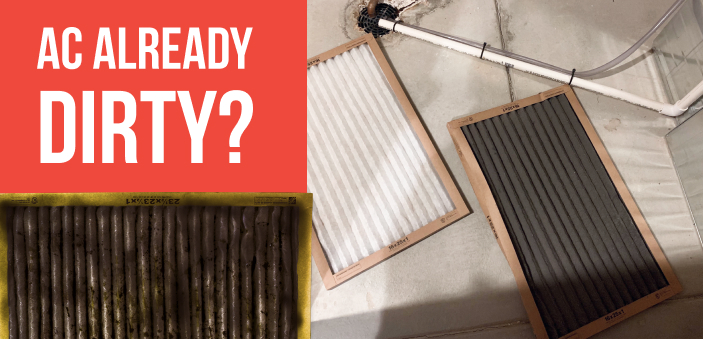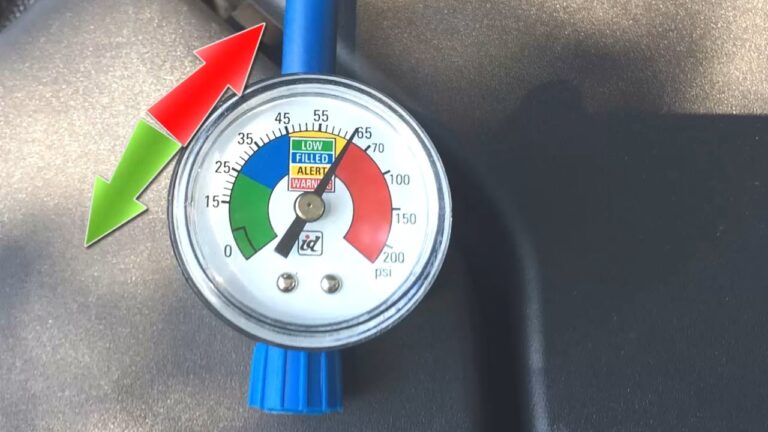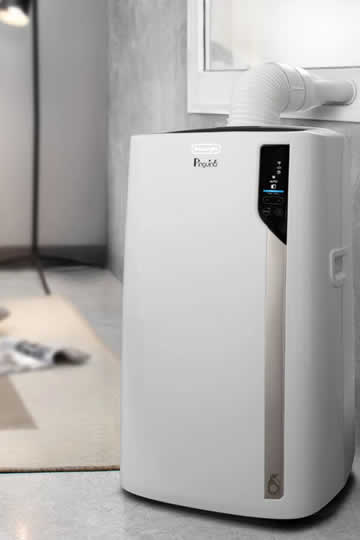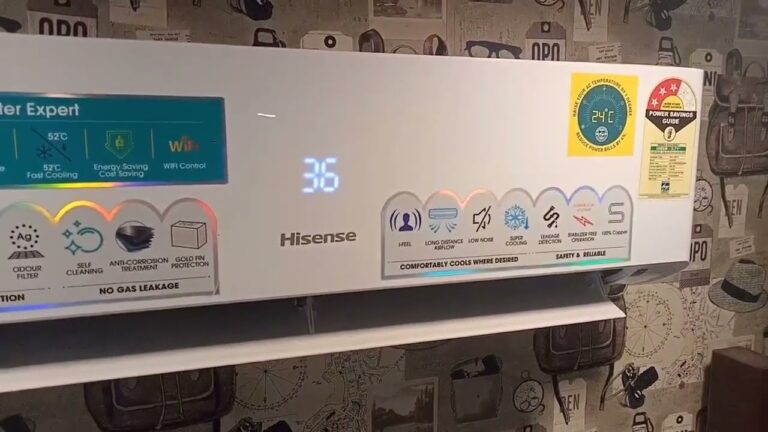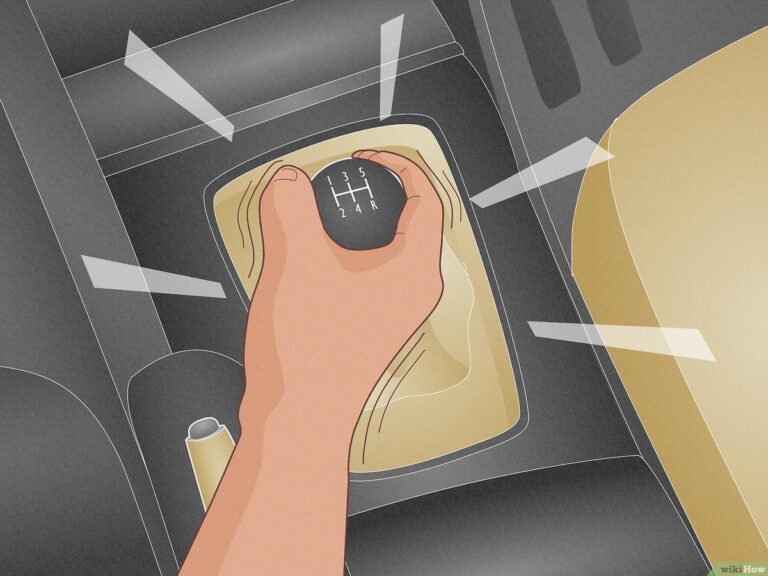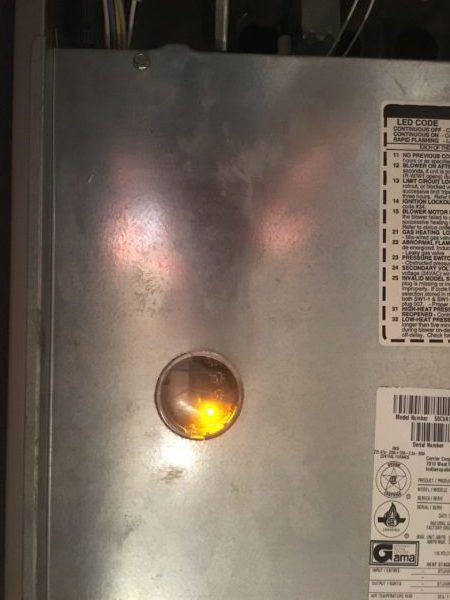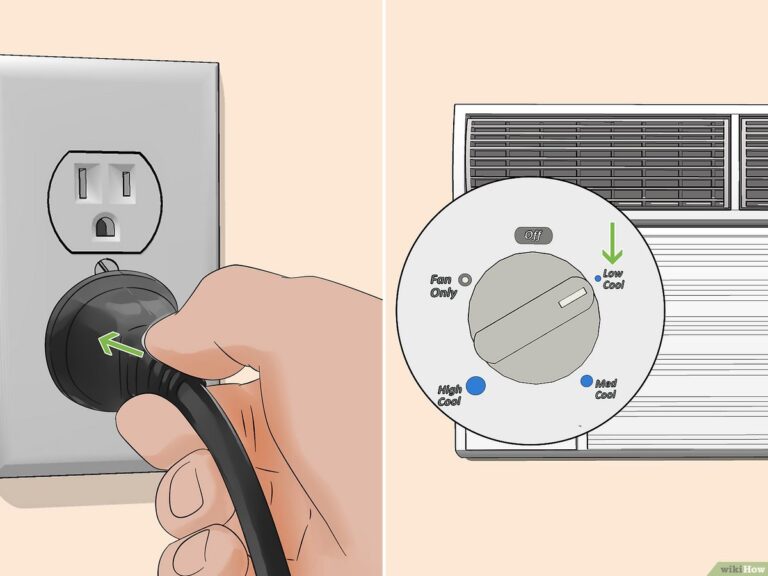Why Does My AC Filter Get Dirty So Fast? Discover the Causes
Your AC filter gets dirty quickly due to frequent use and high levels of dust or allergens in your home. Poor indoor air quality and pets also contribute.
A dirty AC filter can cause numerous issues, from reduced efficiency to higher energy bills. Regular maintenance is essential for optimal performance. Filters trap dust, dirt, and other airborne particles, preventing them from circulating through your home. Homes with pets, smokers, or in construction-heavy areas will experience faster filter clogging.
Regularly changing or cleaning your filter improves air quality and extends the lifespan of your system. Understanding the factors contributing to a dirty filter can help you take proactive measures. Keeping your HVAC system clean ensures a healthier living environment and better efficiency.
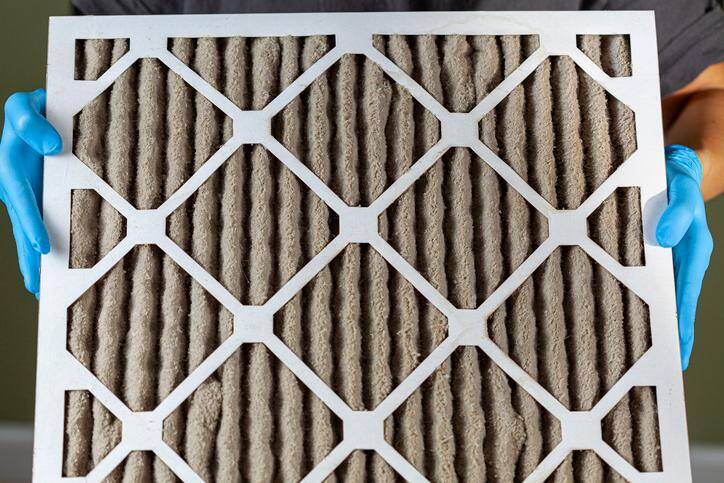
Credit: tomhoffmannairconditioning.com
Common Causes Of Dirty Ac Filters
AC filters often get dirty quickly. This can be due to various factors. Let’s explore the common causes of dirty AC filters.
Indoor Air Quality
Indoor air quality greatly affects your AC filter. Poor air quality means more particles in the air. This makes your filter dirty faster.
Here are some common indoor air pollutants:
- Pet dander
- Pollen
- Mold spores
- Smoke
Homes with pets or smokers have more pollutants. This makes the filter work harder.
Household Dust And Debris
Dust and debris in your home can clog your AC filter. Dust comes from various sources like:
- Dirty shoes
- Open windows
- Old furniture
Regular cleaning helps reduce dust. Cleaning your home keeps the filter cleaner longer.
Here is a table showing dust sources and their impact:
| Dust Source | Impact on Filter |
|---|---|
| Dirty Shoes | High |
| Open Windows | Medium |
| Old Furniture | Low |
Remember, a clean home keeps your AC running well. Regular maintenance is key.
Credit: www.reddit.com
Impact Of Pet Hair And Dander
Pets bring joy and companionship, but they also bring hair and dander. These tiny particles can quickly dirty your AC filter, causing a range of issues. Understanding the impact of pet hair and dander can help you maintain a cleaner, more efficient system.
Pets In The Home
Having pets at home means more hair and dander in the air. Dogs and cats shed regularly, spreading hair and skin flakes. These particles float around and eventually get sucked into your AC system.
Even pets that don’t shed much still produce dander. This dander is made up of tiny skin flakes and can easily clog your filter. Birds also shed feathers and produce dander, adding to the problem.
Multiple pets mean even more hair and dander. Each pet adds to the load, making your filter dirty faster. Regular grooming can help, but it won’t eliminate the problem entirely.
Increased Filter Load
The AC filter catches pet hair and dander as air circulates. This added debris increases the filter load, causing it to clog more quickly. A clogged filter reduces airflow and forces your system to work harder.
When the filter is clogged, the AC can’t cool your home efficiently. This inefficiency can lead to higher energy bills and more wear and tear on your system.
The increased load also means you need to replace or clean your filter more often. Regular maintenance is essential to keep your AC running smoothly.
| Number of Pets | Filter Replacement Frequency |
|---|---|
| 1 Pet | Every 2-3 Months |
| 2-3 Pets | Every 1-2 Months |
| 4+ Pets | Every Month |
- Regular grooming reduces hair and dander.
- High-quality filters can catch more debris.
- Consider an air purifier for extra help.
Environmental Factors
Understanding why your AC filter gets dirty quickly can be frustrating. Environmental factors often play a significant role. Let’s explore some common environmental reasons your filter may be clogging faster than expected.
Pollen And Outdoor Contaminants
Pollen is a major culprit during certain times of the year. If you live in an area with many trees and plants, your AC filter might collect pollen more quickly. Outdoor contaminants like dust, dirt, and debris can also enter your home. These particles can clog your AC filter faster than usual.
- Pollen from trees and plants
- Dust carried by wind
- Debris from construction sites
Seasonal Changes
Seasonal changes can significantly impact the cleanliness of your AC filter. In spring and summer, more pollen and dust are in the air. This increases the load on your AC filter. Winter can also be challenging due to indoor air quality. People spend more time indoors, creating more dust and dirt.
| Season | Environmental Factors |
|---|---|
| Spring | High pollen levels |
| Summer | Increased outdoor activities, more dust |
| Fall | Fallen leaves and debris |
| Winter | Indoor dust, more time inside |
Each season brings unique challenges for your AC filter. Awareness of these factors can help you maintain a cleaner, more efficient system.
Frequency Of Ac Usage
Have you noticed your AC filter gets dirty fast? Frequency of AC usage might be the reason. The more you use your AC, the quicker the filter gets dirty. Let’s explore how constant operation and cooling demands affect this.
Constant Operation
Constant operation of your AC means the filter works non-stop. This leads to faster dirt accumulation. Dust, pollen, and pet dander get trapped quickly. If your AC runs all day, the filter will need frequent cleaning. A cleaner filter ensures better air quality.
Cooling Demands
High cooling demands also affect filter dirtiness. During hot days, the AC works harder. This increases the amount of air passing through the filter. More air means more particles get caught. If your home is large, the AC works even more. You will need to check and replace the filter often.
| Factor | Impact on Filter |
|---|---|
| Constant Operation | Faster dirt accumulation |
| Cooling Demands | Increased particle capture |
Understanding these factors helps maintain your AC better. Regular filter checks are crucial. Clean filters improve efficiency and air quality. Keep an eye on how often you use your AC. Adjust maintenance schedules accordingly.
Home Renovation And Construction
Home renovation and construction can greatly impact your AC filter. During these activities, a lot of dust and debris are generated, affecting indoor air quality. This can cause your AC filter to get dirty much faster than usual.
Dust From Projects
Renovation projects produce a significant amount of dust. Cutting wood, sanding, and drywall installation can release fine particles into the air. These particles can quickly clog your AC filter.
Even minor projects like painting can contribute to this problem. Paint particles can also get trapped in the filter, making it dirty faster.
Increased Airborne Particles
Construction activities often increase airborne particles in your home. This includes sawdust, drywall dust, and other fine materials. Your AC filter works harder to trap these particles, leading to quicker buildup.
Using a table to show some common particles:
| Source | Type of Particle |
|---|---|
| Cutting Wood | Sawdust |
| Sanding | Fine Dust |
| Drywall Installation | Drywall Dust |
| Painting | Paint Particles |
All these particles contribute to a dirty AC filter. Keeping your home clean during renovation can help reduce this issue.
Quality Of Air Filters
Understanding the quality of air filters can help explain why your AC filter gets dirty quickly. Air filters vary in material, efficiency, and overall quality. These factors impact how effectively they trap contaminants. Let’s explore the factors that affect air filter performance.
Filter Material
Air filters are made from different materials. Each material has its pros and cons. Common materials include:
- Fiberglass: Inexpensive but less efficient in trapping small particles.
- Pleated Paper: More efficient but can clog faster.
- Electrostatic: Attracts particles using static electricity, good for trapping dust and allergens.
Fiberglass filters are often cheaper but need frequent replacement. Pleated paper filters can last longer but may become dirty faster due to higher efficiency. Electrostatic filters provide a good balance but can be pricier.
Filter Efficiency
Filter efficiency is measured by the MERV rating (Minimum Efficiency Reporting Value). Higher MERV ratings mean better filtration but may clog sooner. Here’s a quick table to illustrate:
| MERV Rating | Particle Size Removal | Common Uses |
|---|---|---|
| 1-4 | Large particles (10 microns or larger) | Residential use |
| 5-8 | Medium particles (3-10 microns) | Commercial buildings |
| 9-12 | Small particles (1-3 microns) | Hospitals, superior residential use |
| 13-16 | Very small particles (0.3-1 microns) | Clean rooms, surgical areas |
Choosing the right MERV rating for your needs is important. Higher MERV filters capture more particles but may reduce airflow. This can make your AC work harder and get dirty faster.
Hvac System Issues
Your AC filter gets dirty fast because of HVAC system issues. Poorly maintained systems can cause filters to clog quicker.
Leaky Ducts
Leaky ducts let in dust and debris from unclean areas. This dirt gets pulled into your AC system. The filter then traps this extra dust. This makes it clog faster than normal.
Check for holes or gaps in your ductwork. Use metal tape or mastic sealant to fix these leaks. A professional can inspect and repair ducts to stop leaks.
Improper Installation
Improper installation affects how your HVAC system works. If your system is too big or too small, it can cause problems. An oversized system cycles on and off too often. This quick cycling can wear out parts and clog filters.
Make sure your HVAC system is the right size for your home. A professional can help you choose the best system. Proper installation ensures your system runs efficiently.
Preventive Measures
Having a dirty AC filter can cause several problems. It reduces the efficiency of your AC system, increases energy costs, and impacts indoor air quality. Preventive measures can help keep your AC filter clean and ensure your system runs smoothly.
Regular Maintenance
Regular maintenance is crucial for a clean AC filter. Schedule a professional check-up at least twice a year. Inspect your filter every month. Replace or clean it as needed. This simple task can extend the life of your AC system.
Choosing The Right Filter
Choosing the right filter is important for maintaining a clean AC system. Different filters are available, each with unique features. Consider the following factors:
- Filter Type: HEPA, pleated, or fiberglass filters.
- MERV Rating: Indicates the filter’s efficiency.
- Size: Ensure the filter fits your AC unit.
| Filter Type | Efficiency | Recommended Usage |
|---|---|---|
| HEPA | High | Allergies or asthma |
| Pleated | Medium | General use |
| Fiberglass | Low | Basic filtration |
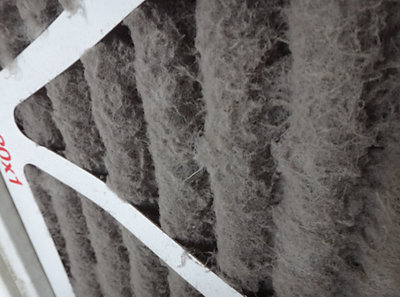
Credit: www.coolray.com
Frequently Asked Questions
Why Is My Ac Filter So Dirty After One Day?
Your AC filter may get dirty quickly due to excessive dust, pet hair, or poor indoor air quality. Check for nearby construction or increased household activity. Frequent filter changes can help maintain efficiency.
Why Is My Filter Getting Dirty So Fast?
Your filter gets dirty quickly due to high dust levels, frequent HVAC use, or poor air quality. Regular maintenance helps.
Why Is My Air Filter Black After 2 Days?
A black air filter after 2 days indicates heavy dust, pollutants, or mold. Check for high indoor pollution or mold issues.
Conclusion
Understanding why your AC filter gets dirty fast helps maintain your system. Regular maintenance ensures better efficiency. Clean filters improve air quality and reduce energy costs. Schedule periodic check-ups to avoid major issues. A clean filter means a healthier home environment.
Keep your AC running smoothly with consistent care and attention.

